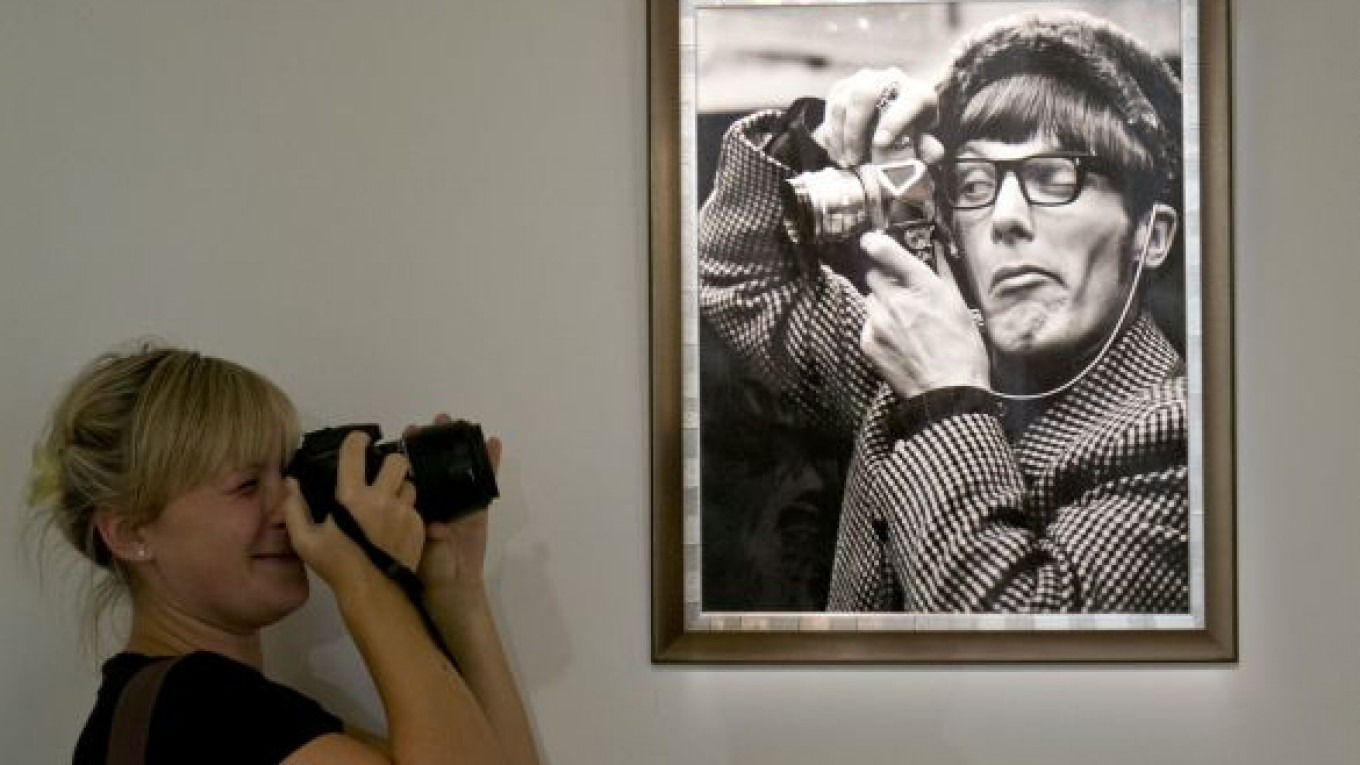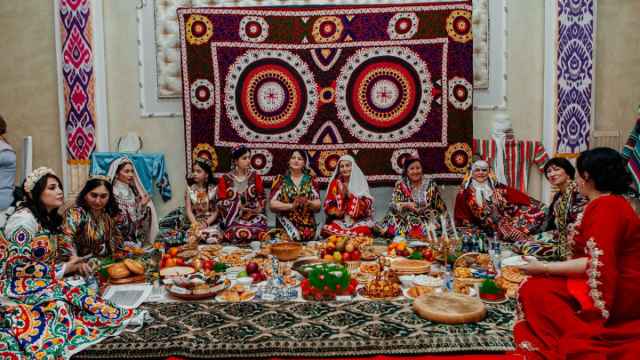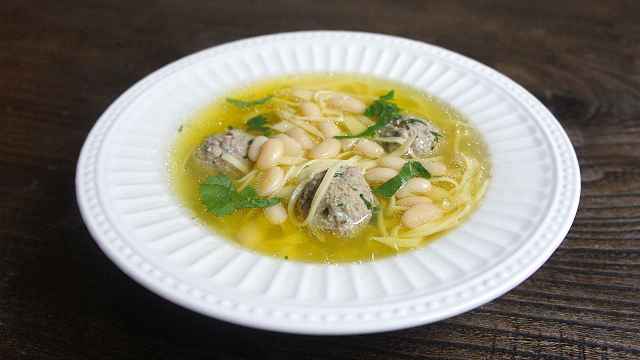The Soviet Union in the 1970s is a time that most foreigners probably associate with the colors red and gold. The vibrancy of the Communist Party's palette perhaps clashes with the other Western stereotype of the time period, one of stodgy leaders and suffocating officialdom.
However, the Gallery of Classical Photography's new exhibitions of Pyotr Nosov and Anatoly Kulakov, two photographers who shot in black and white, can bring a bit of color to the seemingly impersonal Brezhnev era with shots of the ordinary people and objects that made up Soviet life.
Though Nosov (1938-2002) and Kulakov (1939-2012) worked during the same time period, the two photographer's pictures, displayed in adjoining rooms on the gallery's second floor, show differences in their approach to photography.
Nosov worked for years as an official photographer at the state news agency Itar-Tass, known as Tass until the 1990s. A small collection of his work in the exhibition "Classic Genre" is of Soviet leader Leonid Brezhnev and Politburo members. However, the larger part of his photographs on display, which also include pictures from the late 1950s through the 1990s, show the personal lives of Muscovites and come from his private work.
In one photo titled "What a Woman," Nosov catches a man in a park taking a glance at a woman walking by. Indeed, the photos in the exhibition often capture what French photographer Henri Cartier-Bresson called "the decisive moment": a hockey player splaying himself completely horizontally in the air, a monkey screaming as a veterinarian primes a syringe or a baby widening its eyes at the camera.
Kulakov's photos, all of which are untitled and undated, also explore the private lives of Russians during the late Soviet Union, though his work often focuses more on setting up interesting compositions than capturing emotion. Nosov's photos are all lit from behind and give off a glow while Kulakov's are displayed normally.
Mark Kobert, a director and one of the founding members of the gallery, said of the differences between the two photographers "The idea was that for Nosov, we wanted them to feel warm," adding, "To Kulakov, we brought a cold, very intellectual light."
Street shots from the later photographer, who published his photos in journals but did not work for official agencies, do not garner the same nostalgia for the Soviet Union but rather use a documentary style. In some photos, viewers see old men's faces laced with wrinkles, but Kobert said the photos were more "medical" and do not attempt to show the subject's personality.
Kulakov's personality is more visible in his still lifes, striking images of eggs in a bowl or a broken typewriter. Though conceptualist and focused on form, photos like those of a toy ball in the curves of the human body show a personal, artistic departure from the era's public life.
Works by Nosov and Kulakov will be displayed until Oct. 27 at the Gallery of Classical Photography, 23 Savvinskaya Naberezhnaya, Bldg. 1. Metro Sportivnaya.
Contact the author at c.brennan@imedia.ru
A Message from The Moscow Times:
Dear readers,
We are facing unprecedented challenges. Russia's Prosecutor General's Office has designated The Moscow Times as an "undesirable" organization, criminalizing our work and putting our staff at risk of prosecution. This follows our earlier unjust labeling as a "foreign agent."
These actions are direct attempts to silence independent journalism in Russia. The authorities claim our work "discredits the decisions of the Russian leadership." We see things differently: we strive to provide accurate, unbiased reporting on Russia.
We, the journalists of The Moscow Times, refuse to be silenced. But to continue our work, we need your help.
Your support, no matter how small, makes a world of difference. If you can, please support us monthly starting from just $2. It's quick to set up, and every contribution makes a significant impact.
By supporting The Moscow Times, you're defending open, independent journalism in the face of repression. Thank you for standing with us.
Remind me later.






